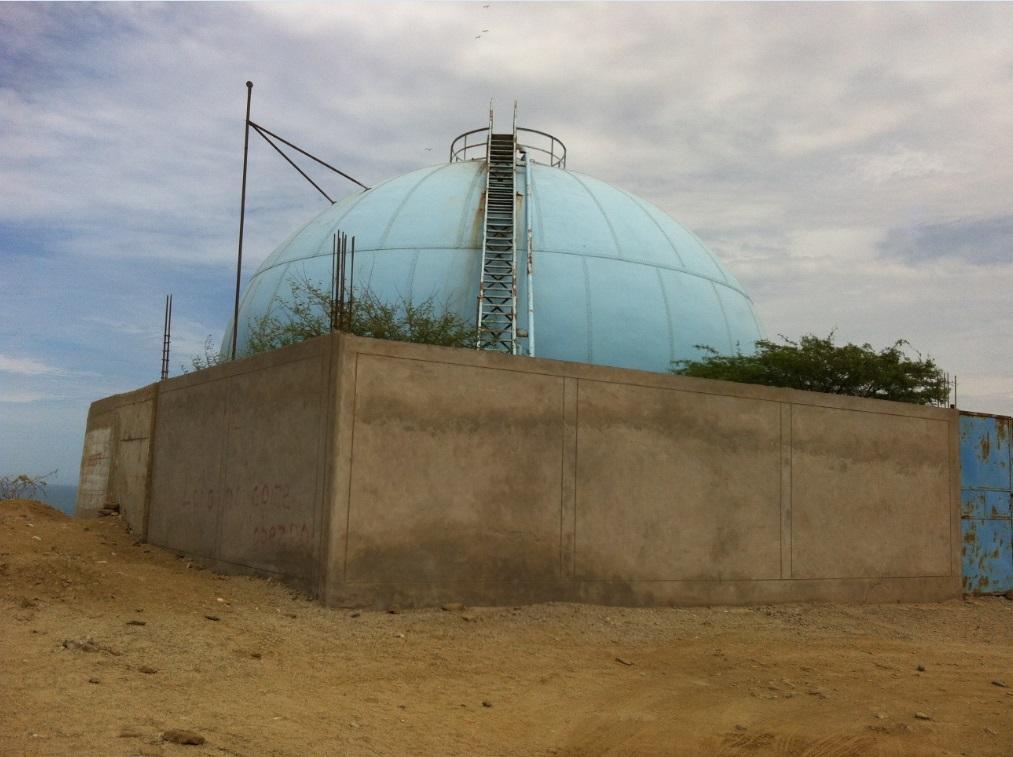
Submitted by Administrator on Thu, 18/08/2016 - 14:22
Phd Student Christiana Smyrilli wanted to use her engineering skills and knowledge for social development, and has therefore chosen a non-traditional research topic for her PhD: she aims to explore water and sanitation infrastructure in developing rural areas, with a specific focus on gender.
Rural communities generally have very distinct gender roles assigned, where the women are the primary collectors, users and managers of water. Where the water is not readily available, or the source for supply is far, women and girls might need to walk long distances for a long time, and carry buckets full of water back to their village. This impacts their health, as well as their opportunities for personal and economic development, since they cannot attend school or participate in income-earning activities.
Similarly, where adequate sanitation facilities are not present, women suffer from low dignity and pride, as they are forced to defecate in the open, which is made worse during their menstrual period. In many cases, they wait until dark to relieve themselves, which exposes them to increased risk of violence, as well as undermines their health. Other problems were apparent too. Wastewater treatment was not present, with many houses using silos. Where the houses were connected to the sewerage, the pipes were old and deteriorating, resulting in breakage and spillage, polluting the environment. Both water and sanitation infrastructure lead to improved health and hygiene, as well as a number of socio-cultural, economic and psychological benefits, particularly for women. Therefore, gender considerations should be a part of infrastructure projects.
As a scoping exercise and to explore the potential for collaboration for the research, Christiana visited Lobitos, a small village in the North of Peru. There, she spent two weeks with a local NGO, EcoSwell, in order to gain a first hand experience with a developing rural area. A lot of the issues with the lack of water supply and sanitation came up during her visit, and she experienced the gender dimensions first hand. "For a week there was no water supply, which made showering and washing up the dishes impossible. Not feeling clean, feeling embarrassed to use the toilet as it wouldn't flush was certainly a challenge." Christiana admitted. Coming from the UK where decent sanitation was the norm, she felt deeply about what the women in the village had to put up with.
During her time in Lobitos, Christiana also engaged in EcoSwell activities in the local community. In particular, she took part in a workshop with local children, where they were introduced to the concepts of sustainability, reforestation, recycling and reusing of materials. They were shown around the EcoSwell house, where a number of sustainable practices are taking place, like water recycling and composting food, and planting seeds in the garden. They were then each given a plant to take home and to encourage reforestation among their families.
Christiana felt the time spent in Lobitos was an eye-opener and the whole experience put the research into perspective, it highlighted the many issues faced by communities with lack of access to reliable, adequate water supply and sanitation. Her research aims to analyse how organisations which work within the sector of water and sanitation address gender through their projects, whether any important aspects of gender are missing, and how gender can become an integral part of development projects.
Christiana would like to extend her thanks to Sakthy for introducing her to EcoSwell [the NGO], Newnham College and the Center for Latin American Studies for providing financial assistance, as well as EcoSwell for helping her during her time in Peru. http://ecoswell.org/home.html

